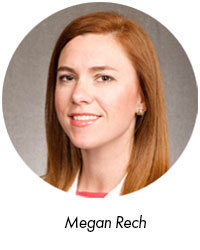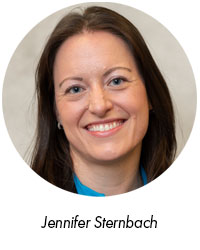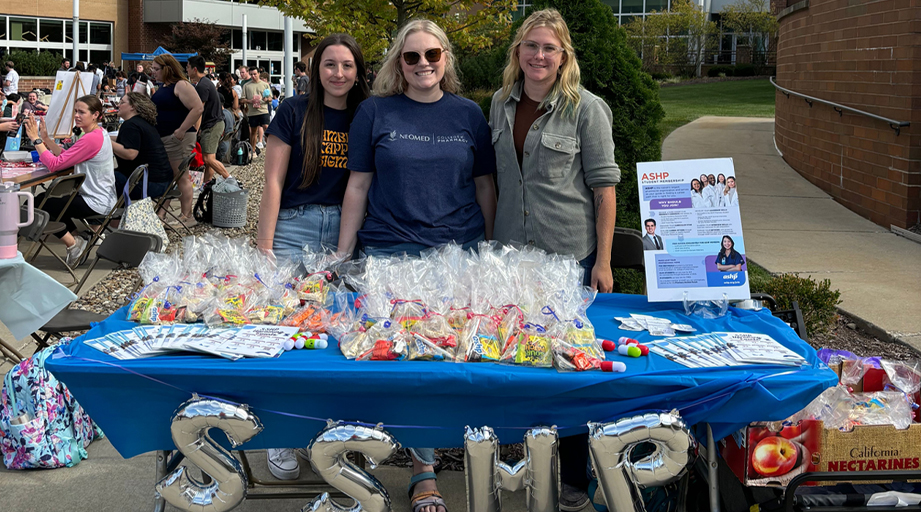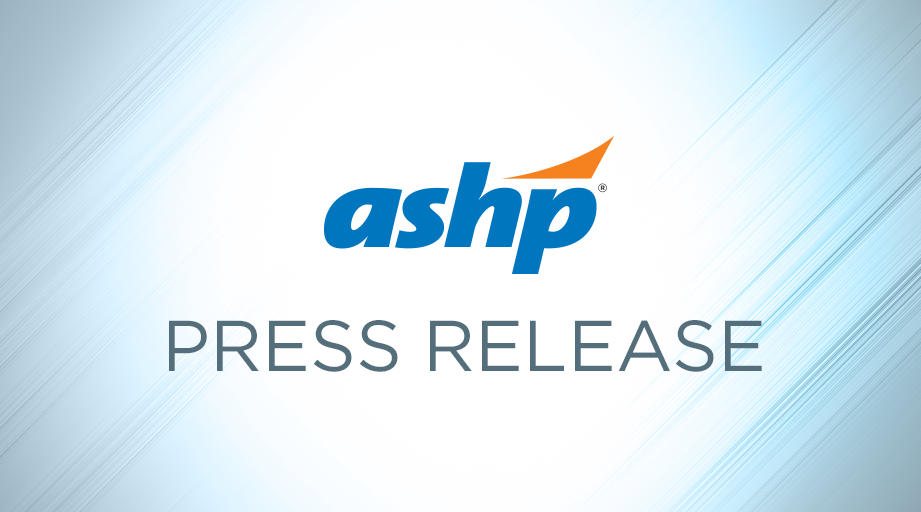
In areas that have been hit hard by COVID-19, pharmacists acknowledge feeling strained and worried about what lies ahead.
 “We have seen a lot of cases,” said Karan Raja, infectious disease clinical pharmacy specialist at Clara Maass Medical Center in Belleville, New Jersey. He described the intensity of the pandemic as “a very trying time.”
“We have seen a lot of cases,” said Karan Raja, infectious disease clinical pharmacy specialist at Clara Maass Medical Center in Belleville, New Jersey. He described the intensity of the pandemic as “a very trying time.”
Megan Rech, emergency medicine clinical pharmacist at Loyola University Medical Center in Maywood, Illinois, likewise said her hospital has “seen a lot of COVID-19 patients,” and the workplace is “more stressful than normal.”
New Jersey and Illinois were the second and third states, after New York, to report 100,000 COVID-19 cases.
 Cook County, which includes Maywood, had the nation’s highest cumulative COVID-19 case count in late May and ranked fourth nationally in deaths, according to county-level data from Johns Hopkins University. Essex County, New Jersey, home to Bellville, ranked 10th nationally in COVID-19 deaths and was in the top 20 in case counts.
Cook County, which includes Maywood, had the nation’s highest cumulative COVID-19 case count in late May and ranked fourth nationally in deaths, according to county-level data from Johns Hopkins University. Essex County, New Jersey, home to Bellville, ranked 10th nationally in COVID-19 deaths and was in the top 20 in case counts.
Rech said she and her colleagues remain committed to their patients despite facing many challenges.
Stressful situations
Lynn Crismon, dean and professor of pharmacy and psychiatry at the University of Texas at Austin, said prolonged stress contributes to burnout, depression, and substance abuse among healthcare providers.
And as the pandemic continues, he said, there are “many, many reasons for pharmacists’ stress levels to be high, just like nurses and physicians and other clinicians.”
He said a top worry for clinicians is probably that they will be exposed to the SARS-CoV-2 virus and bring it home to their loved ones.
Raja said that fear is “in the back of your mind every day.”
He said some of his colleagues have responded by staying in hotels instead of going home to their families.
Rech similarly noted that a few of her coworkers have “sent away” their children and spouses to protect them.
“It's nerve-wracking, because you don't want to expose them to anything,” she said.
Raja said his COVID-19 exposure-control refresher training identified practices that help protect family members, such as washing work clothing daily and removing shoes before entering the home.
Rech said the personal protective equipment (PPE) that helps keep her safe at work can also be a source of unease.
“You feel like you can’t make any mistakes in terms of donning and doffing PPE and washing your hands,” she said.
Promoting well-being
Crismon, who is ASHP’s nominee on the National Academy of Medicine’s Committee on Systems Approaches to Improve Patient Care by Supporting Clinician Well-Being, said healthcare providers are working in uncertain conditions and facing an undefined “new normal” as the pandemic progresses.
“No one has any idea how long it’s going to last,” he added. And, he said, this uncertainty “makes looking at stress and burnout from a systems approach really challenging.”
 Jennifer Sternbach, corporate director of clinical pharmacy services for RWJBarnabas Health, said her organization’s “high reliability” focus is helping address some of these system-level challenges.
Jennifer Sternbach, corporate director of clinical pharmacy services for RWJBarnabas Health, said her organization’s “high reliability” focus is helping address some of these system-level challenges.
High-reliability organizations strive to anticipate potential safety problems and respond quickly to prevent catastrophic consequences. A commitment to resilience is a key organizational component.
Sternbach said one ongoing initiative involves educating pharmacy residents about available resources, such as the employee assistance program, to create “a safety net to ensure that when we stumble, that we’re there for them.”
Raja, one of the health system’s past residents, said the initiative promotes a culture in which there’s no judgment when someone needs to cry or vent after a bad day.
He added that the healthcare team has grown closer during the pandemic, and he said he and his nurse and physician colleagues routinely check on each others’ well-being.
All together
Sternbach said her health system recognizes the need to tell employees they’re valued and to show appreciation for their work.
The “Heroes Work Here” campaign — inspired by an anonymous message written on the sidewalk outside the health system’s Bayonne hospital — is one way the organization shows appreciation for its 44,000 staff members.
Stacie J. Newton, director of public relations and marketing at the Clara Maass Medical Center, said the campaign included a celebration in mid-May with a red-carpet rollout and a “Heroes Work Here” t-shirt for all staff.
“They’re small things, but I think they’ll make a difference in terms of making every employee feel appreciated,” Newton said.
Sternbach said the pharmacy department honored its staff during the campaign by soliciting photos to post on social media.
“Each of the sites was able to show off their teammates and show the pharmacy heroes as well,” she said.
Future well-being
A recent study reported in JAMA Network Open found high levels of depression, anxiety, insomnia, and distress in healthcare professionals in China who cared for COVID-19 patients.
COVID-19 related stress in U.S. healthcare workers is also a concern. The National Institutes of Health has launched an online study of how the pandemic is affecting healthcare workers’ well-being. Participants’ responses to questions about COVID-19 and mental health will be tracked at baseline, months 1, 2, 3, 6, and 12, and at the end of the study.
Crismon encouraged pharmacists to use resources that promote well-being and seek diversions that help to reduce stress.
“For me, my garden is my therapy,” he noted.
And he said it’s important to avoid falling into harmful thought patterns.
“I think we have to keep in mind that even though this is prolonged, it will end,” Crismon said. “It’s really, really important for people to stay focused on the future and on hope. We’ll all get through this if we work together.”
Visit ASHP’s Well-Being & You resource for information about coping with stress and avoiding burnout. For more information and free tools regarding the pandemic, including the Assessment of Evidence for COVID-19-Related Treatments, visit ASHP’s COVID-19 Resource Center and the COVID-19 Community at ASHP Connect.
[This news story appears in the September 1, 2020, issue of AJHP.]









